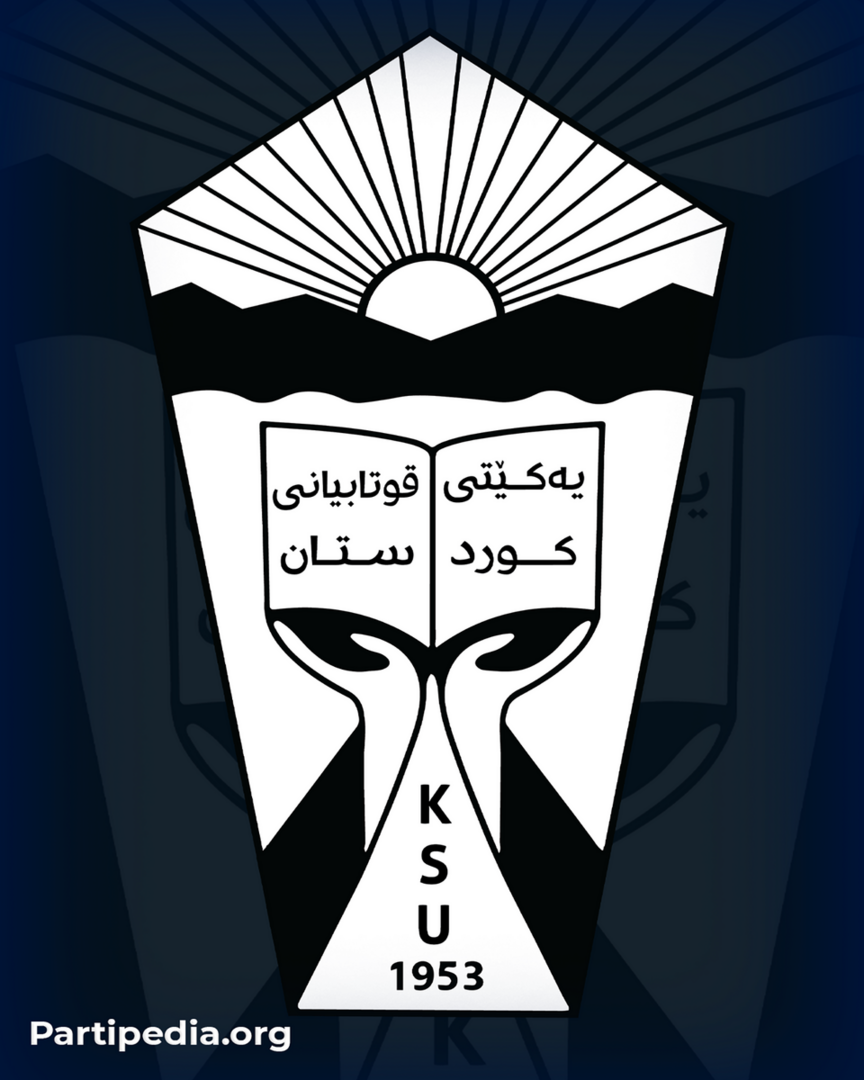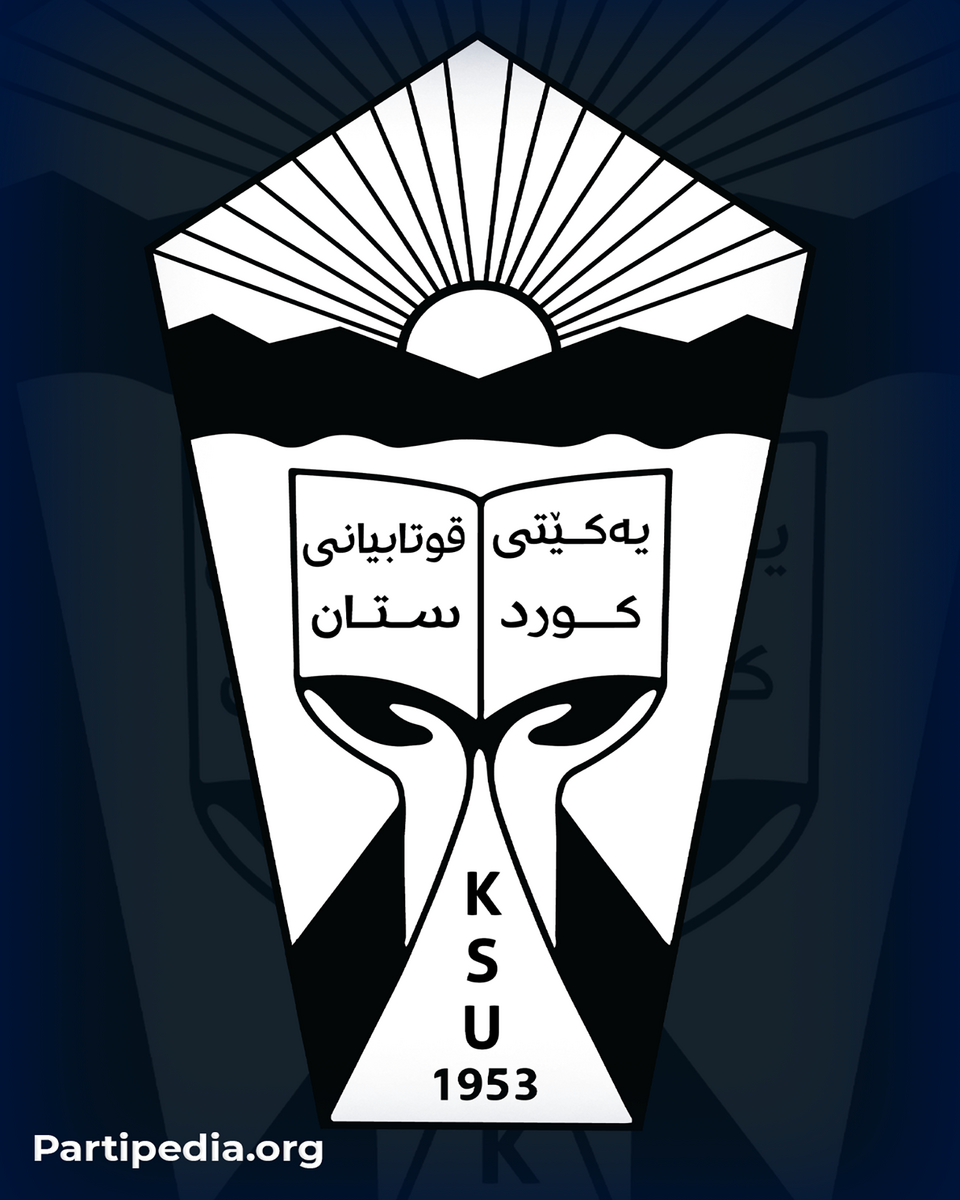Reasons for holding the congress:
Following the second conference of the Kurdistan Students Union in August 1964, the organization's branches in educational centers and various cities across Kurdistan and Iraq actively resumed their work. To further organize their affairs, the Students' Secretariat decided to hold a comprehensive meeting during the 1964-1965 academic mid-year break1.
In February 1965, a meeting took place in the Karadag area of southern Sulaimani province, attended by representatives from all branches of the organization across various cities in Kurdistan and Iraq, with particular focus on the Badinan region. Approximately forty members participated in the meeting, and Ali Shingari was sent by the party's central bureau to oversee the proceedings2.
The meeting, which lasted one day, made several key decisions. One of the most important was the reaffirmation of support for the revolution and the decision to retain the secretariat or preparatory committee elected at the second conference until the next congress.3
In response, the faction that had split from the party and the organization and aligned with the Political Bureau issued a statement opposing the meeting. This action further exacerbated the internal tensions within the organization4.
Shortly after this meeting, divisions and conflicts emerged within the leadership of the Kurdistan Students Union. As a result, several members left the organization, and some leaders distanced themselves from their roles. Among those affected, Bakr Hussein, a member of the secretariat, joined the splinter faction of the Political Bureau and was subsequently expelled from the Kurdistan Students Union. Abdulkarim Fandi joined the Peshmerga forces of the Eylul Revolution, while Jalal Hama Ali also departed from the ranks of the organization.
In response to the challenges facing the Kurdistan Students Union (KSU) and to address the accumulated problems, the secretariat decided to convene an emergency conference to expedite preparations for the fifth congress. This conference was held on June 29, 1966, in Nawpirdan, Balakaity region. Several important decisions were made, including the establishment of a preparatory committee for the fifth congress, which was scheduled for the summer of 1967. The conference also emphasized continued support for the revolution and the defense of the professional and academic interests of Kurdish students.
Conducting the Congress:
As decided at the Nawpirdan conference, and due to the complex situation the organization was facing, the congress was held from July 13 to 15, 1967. The event took place under the slogan, “O Students, Fight for the Rights of Students and Build a Democratic Iraq, Parliament, and Autonomy for Kurdistan.” The congress was attended by seventy representatives from the organization's branches and local committees, including those from colleges in Baghdad and Mosul, as well as institutes and secondary schools across various parts of Kurdistan. The meeting was held in the Shwan area of Kirkuk province, with Ahmed Jarjis Atrushi, the representative of President Mustafa Barzani, in attendance.:
The draft program and bylaws of the organization were approved by the congress members with some amendments. Abdulkarim Hassan was elected as the president, and Nawzad Ali Mohammed was chosen as the secretary. The new secretariat was elected by the votes of the congress delegates and included the following members:
1- Anwar Abdullah, Member of the Secretariat
2- Qadir HamadAmin, member of the secretariat
3- Jawad Mohammed Sherwani, member of the secretariat
4- HamaZiad Ismail, Member of the Secretariat8.
The congress made several significant decisions, including:
- Strengthening relations with Turkish and Syrian student organizations.
- Advocating for the establishment of a university in Kurdistan.
- Expelling Abdul Wahab Talabani and Fares Jukal Hawez from the organization due to their connections with the central government.
- Ensuring the admission of Kurdish students to Iraqi colleges and universities based on regional distribution.
- Promoting the Kurdishization of education at all levels throughout Kurdistan, with particular emphasis on Mosul province.
- Facilitating the inclusion of Kurdish students in military, police, and aviation colleges.
- Addressing the status of students who had joined the revolution.
- Securing a representative of the organization on the Revolutionary Leadership Council.
Additional decisions were also made to further the organization's goals9.
In November 1967, the new leadership launched the magazine *Khabati Qutabyan* as the official publication of the Students' Union. However, the staff's tenure was brief. Four months later, Abdul Karim Hassan resigned from his position as president of the union, and Nawzad Ali Mohammed joined the Peshmerga forces. Consequently, Anwar Abdullah was appointed as the new president of the Kurdistan Students Union, with Abdulqadir HamadAmin taking on the role of secretary10.
Soon after, conflicts arose within the new leadership. Cadres based in Baghdad felt they were underrepresented at the fifth congress and subsequently formed a committee to oversee the Baghdad Organizing Committee, which they called the "Main Baghdad Organizing Committee." As this committee began its work, a new leadership group for the union was elected as follows:
1- Farhad Awni Habib, Head of the Committee
2- Jalal Khoshnaw, member of the committee
3- Ranj Nuri Shaweis, Member of the Committee
4- Jawad Mohammed Sherwani, member of the committee
5- Adel Fazel Leylani, member of the committee
6- Faraidun Osman, member of the committee11.
In 1968, the Baghdad Main Organizing Committee reached out to the branches in Kirkuk, Sulaimani, and Mosul to supervise their operations, addressing the weaknesses within the secretariat. That same year, they organized an open Newroz celebration at the College of Management and Economics at Baghdad University, which was attended by approximately two hundred Kurdish and Arab students12.
Due to their physical distance from each other, the Secretariat of the Kurdistan Students Union and the Main Committee in Baghdad had limited coordination. As a result, the Baghdad-based organization exerted more control over the union. In July 1968, the Erbil branch and the secretariat from the Fifth Congress visited President Mustafa Barzani in Haji Omerani village in Erbil province because the Erbil branch could no longer effectively coordinate with the secretariat13.
This issue of poor coordination persisted until the autumn of 1969. At that time, a delegation from the Kurdistan Democratic Party (KDP) Political Bureau in Baghdad met with the Main Organizing Committee of Baghdad. It was decided to hold a joint meeting for both groups in the village of Nawprdan, at the headquarters of the KDP Political Bureau. On February 6, 1970, in the absence of the Kurdistan Students Union president, the meeting took place, resulting in the formation of the "Central Organization Office" for both sides, which was structured as follows:
1- Farhad Awni, Head of the Central Office
2- Anwar Abdullah, member of the central office
3- Jalal Salim Khoshnaw, member of the central office
4- Qadir HamadAmin, member of the central office
5- Ranj Nuri Shaweis, member of the central office
6- Adel Fazel Leylani, member of the central office.
After the establishment of the new central organization office, the tasks were divided as follows:
- Farhad Awni and Jalal Khoshnaw - Supervisor of the organizations of Baghdad University, schools in Baghdad province, schools in Sulaimani province and schools in Khanaqin.
- Jawad Mohammed Sherwani - Head of Organizations of Basra University.
- Qadir Hama Amin - Head of Schools Organization in Erbil Province.
- Ranj Nuri Shaweis and Anwar Abdullah - Head of Organizations of Mosul University and Schools in Mosul Province.
- Adel Fazel Leylani and Faraidun Osman - Head of Kirkuk Provincial Organizations.
- Baghdad was designated as the center of power16.
Source:
1.kdp Encyclopedia Archive.





